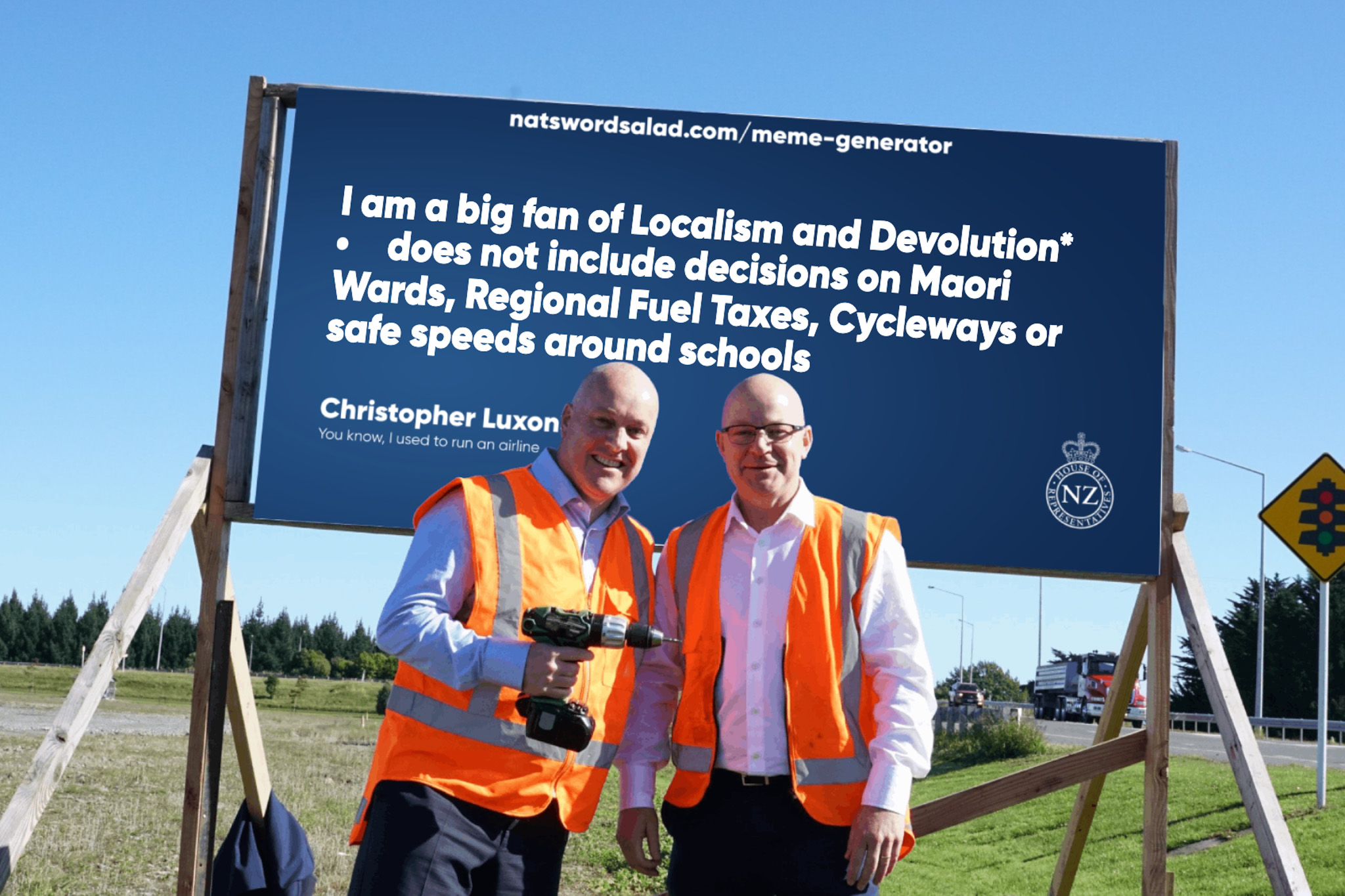When I was a Waitakere City Councillor I had the misfortune of occasionally attending the same meetings with then Auckland Mayor John Banks.
It did not matter what the meeting was about, regional transport, environment, libraries or sport he always gave the same speech. He inevitably said that we should not use ratepayers as piggy banks. Of course his short term penny pinching meant that the long term investments in Auckland’s infrastructure did not occur and we are now playing catch up but that is a story for a different day.
I reflected on this when I reviewed Prime Minister Christopher Luxon’s speech to Local Government New Zealand because it struck me that he, like Banks, was truly a one dimensional politician who had no idea of the importance of Local Government.
And his meddling could wreck Local Government.
There were a few jaw dropping aspects to the speech. He said Cabinet has decided to do away with the four well beings, which currently require Councils to focus on social, cultural, environmental and economic well beings of their communities now only now but also in the future.
Councils are expected to concentrate on “must-haves, not nice-to-haves”. The Government will investigate benchmarks for local councils based on similar measures in Australia and will also consideroptions to limit council expenditure of “nice-to-haves”, including revenue capping.
He did not specify what a “must-have” was but said that picking up the rubbish, fixing pipes, filling in potholes and maintaining local assets were things that Councils should be doing and that roads, rubbish and water were
He did not mention libraries, art galleries or community houses. Nor grants to local groups to perform environmental works,
And certainly out west grants to local environmental groups achieve great results.
As an example last year the Waitakere Ranges Local Board funded the Pest Free Waitakere Alliance approximately $75,000.
Thirty groups are affiliated to the alliance. They are responsible for an estimated 63,900 annual volunteer hours. If you monetised this at the living wage this represents $1,661,400 of value.
Hopefully the Alliance would continue without Council funding. But its effectiveness would inevitably be compromised. In economic terms Council’s investment produces an outstanding return, one which would cost the Council considerably more should it do this work itself.
It was not in the speech but in a press release put out yesterday by Simeon Brown this statement was made:
Council rates are increasing by around 15 per cent on average this year, which is more than four times the rate of inflation. This is unacceptable and councils must ensure they are doing everything they can to reduce pressure on ratepayers.
What Brown does not say is that the rates increase is because the Government did away with Three Waters. Councils responded by significantly increasing rates so that they could pay for infrastructure that Three Waters would have taken care of.
For years now Luxon has been talking about the importance of Localism and Devolution. Listen to this clip to hear him say those two words over and over again.
But clearly as far as he is concerned Localism and Devolution are not absolutes. As noted by Joel McManus in this article Localism and Devolution have their limits. From the article:
Auckland Council, the elected representatives of the largest local community in New Zealand, wanted a regional fuel tax to help it fund local transport infrastructure. Unfortunately, their opinion was wrong. That kind of localism makes car drivers mad, so the government had to get rid of it.
Since 2021, 33 local councils around the country have voted to introduce Māori wards. That might seem like a great example of elected local representatives making their own decisions about democratic representation. Those councils had the wrong opinion. The government doesn’t like that kind of localism, so it will mandatorily require councils to hold a referendum to keep their Māori wards.
In the past few years, several councils reduced speed limits on central city streets or near schools. Some changes were required by Waka Kotahi, but many others were because local communities thought slower speed limits would lead to higher retail spending or fewer children being run over. Once again, that was the wrong opinion. The government is now stepping in to reverse every speed limit that has been lowered since 2020.
There are many other examples. Cycleways for instance are as far as this Government is concerned an absolute taboo for local government.
The Government’s proposals could cause carnage and chaos to local government. If you are a user of libraries or community houses, an artist or an appreciator of the arts, or a member of an environmental group you should be very afraid.
And this is such a shame because Local Government can achieve great things. As long as it is allowed to focus on the social, cultural and environmental well being of local communities and not only the economic well being.

Leave a Reply